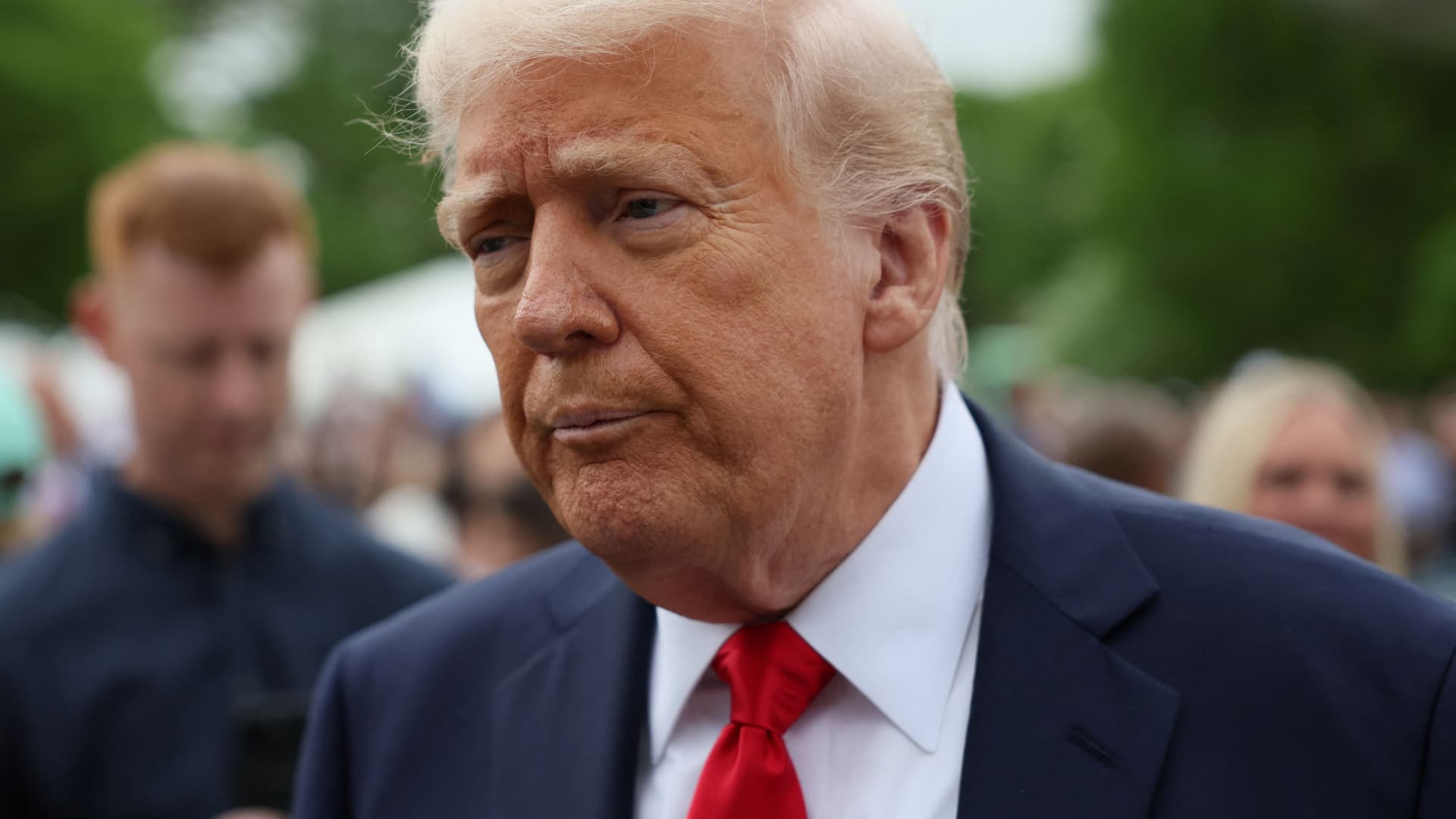President Donald Trump’s public criticism of Fed Chair Jerome Powell has fueled concern that he will try to fire the central bank chief, but even that historic and legally questionable move may not be enough for Trump to bend monetary policy in his preferred direction.
Even firing Powell won’t necessarily get Trump the rate cuts he wants, according to multiple economists.
“In all likelihood, however, firing Powell would just be the first step in dismantling the Fed’s independence. If Trump is set on lowering interest rates then he will have to fire the other six Fed Board Members too, which would trigger a more severe market backlash, with the dollar falling and rates at the long end of the yield curve rising,” said Paul Ashworth, chief North America economist at Capital Economics, in a recent note.
Powell is chair of both the Fed board of governors and the Federal Open Market Committee, which sets interest rate policy. Ashworth pointed out that, while FOMC members usually choose to make the president-appointed board of governors chair to lead them, they can buck Trump and choose someone else as head of the rate-setting committee. And JPMorgan’s chief U.S. economist, Michael Feroli, said in a note Monday that “most of the power of the leadership stems from the historical deference” rather than the actual mechanics of the job.
Deutsche Bank senior economist Peter Sidorov echoed the idea that individual Fed members might vote against the wishes of a new leader if they feel Trump has overstepped.
“Note that while the Fed Chair has significant influence over the FOMC, monetary policy actions are taken by a majority vote so removing Powell could lead to increased pushback from other members against pressure on the Fed to deliver easier policy,” Sidorov said in a note to clients Tuesday.
This discussion on Wall Street comes after Trump has criticized Powell multiple times in recent days, including calling the Fed chair “a major loser” in a social media post Monday that rocked financial markets. White House economic advisor Kevin Hassett said last week that the president and his team were exploring the possibility of removing the Fed chair.
It is unclear whether Trump even has the authority to remove Powell before his term as board of governors chair ends next year. Powell has previously said he does not believe it is legally allowed for the president to fire him. The Supreme Court is set to hear an appeal about Trump’s firing of board members at other federal organizations in a case that could shed light on what’s next for the Fed.
The speculation about changes at the Fed, along with the ongoing tariff uncertainty, appears to have hurt investor confidence in the United States. U.S. stocks, bonds and the dollar have all fallen in recent weeks.
Wall Street pros worry that changes at the Fed could lead to further sell-offs and fears of higher inflation.
“Any reduction in the independence of the Fed would add upside risks to an inflation outlook that is already subject to upward pressures from tariffs and somewhat elevated inflation expectations,” Feroli said in a note to clients.
“It has been hoped that these adverse consequences would dissuade the president from threatening Fed independence, though so far the president has often followed through on his intentions,” he added.
— CNBC’s Michael Bloom contributed reporting.

 Blog Post3 days ago
Blog Post3 days ago
 Economics1 week ago
Economics1 week ago
 Personal Finance7 days ago
Personal Finance7 days ago
 Economics7 days ago
Economics7 days ago
 Economics1 week ago
Economics1 week ago
 Accounting7 days ago
Accounting7 days ago
 Personal Finance1 week ago
Personal Finance1 week ago
 Finance7 days ago
Finance7 days ago




















